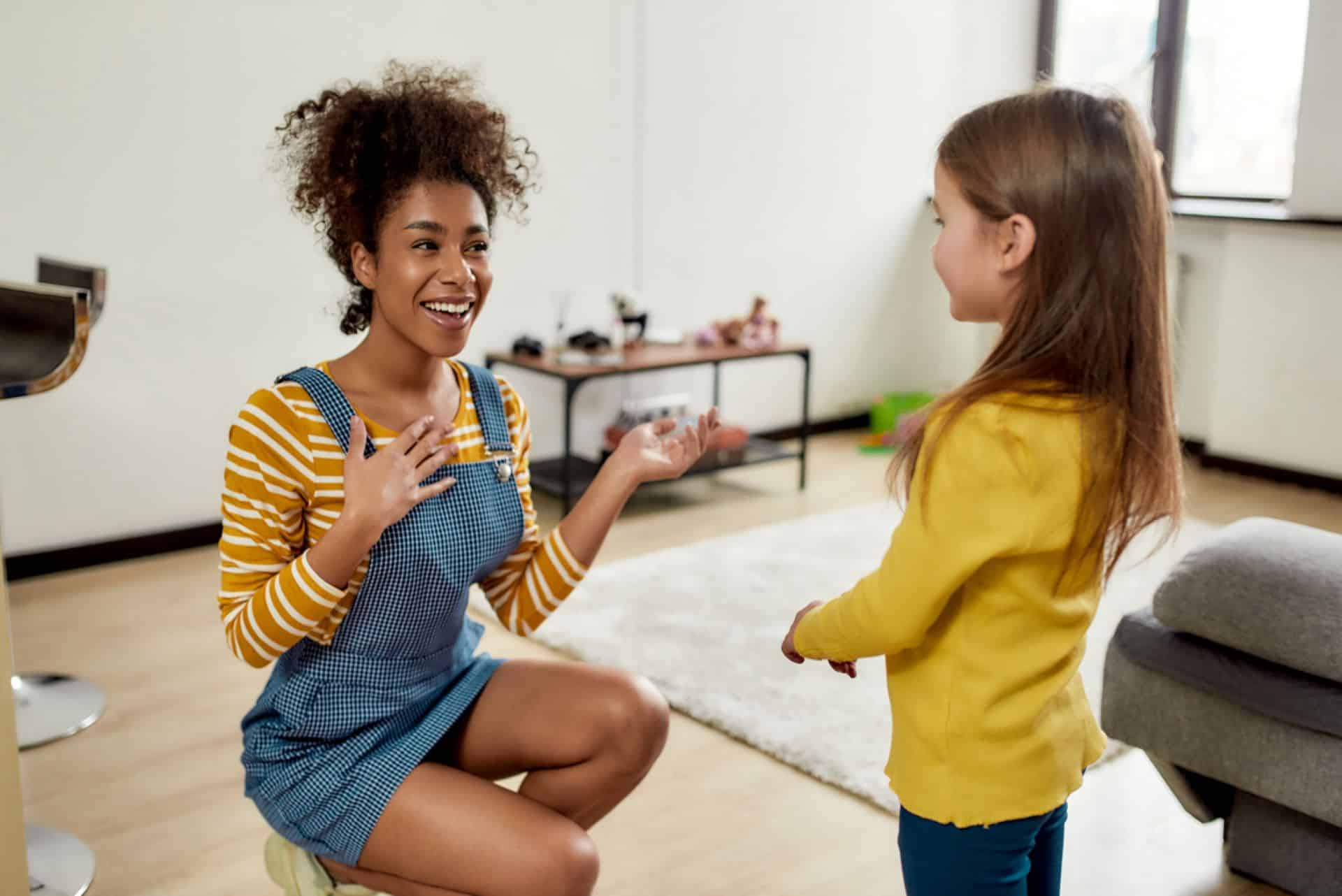Family Life
7 min Read
Why your family needs a teenage babysitter and why they need you

January 2, 2023
Family Life
7 min Read

January 2, 2023

I couldn’t help but smile when I opened the invitation from the mail and read: “Happy 18th Birthday Lily Grace! Amazing people do not just happen; its takes a village.” Lily is, and has been, the go-to babysitter for the past three years for my three girls, and it almost took me aback that she was already 18. What made me smile was that while Lily has been a part of the village raising my kids, I didn’t even realize that we had been a part of the village that raised her. This got me thinking about why every family needs a good teenage babysitter, and why every teenage babysitter needs a good family.
Many parents lament that they never go out anymore. They remember the days of having a social life, and miss that aspect of their relationship not only with themselves and their friends, but especially with their partner or spouse. Too often, the answer to “Do you have a babysitter?” is met with “No; we don’t have any family near by.”
Regardless of geography, parents need to go out and be grown-ups, which requires calling for back-up. But some parents find it really challenging to leave their littlest with someone who isn’t related to them. It seems that while we were growing up, our generation was accustomed to not only being babysat, but also to babysitting (anyone else have a mild obsession with starting her own local chapter of The Baby-Sitters Club?). As our generation became parents however, it seems that unless said babysitter has a degree in Montessori education, is a trained ECE, or is a bonafide blood relative, parents are staying in and watching a whole lotta Netflix.
Julie, a 36-year-old Toronto-based marketing director, says that for her and her husband, sitters aren’t an option. “Mainly it is a trust thing. Only family. I want to know that whoever is with my kids loves them like we do. We never did daycare either, wanting to raise our own babies; we have always found a way to make it work. Sometimes that has meant financial sacrifices, sometimes it has meant sacrifices in our relationship.”
The relationship issue is a common thread when talking about families and babysitting. Any parent knows—sometimes too well—the struggle that comes along with maintaining an active love life with not only your physical, but your social intimacy. It’s easy to divide and conquer to cope with the logistic challenges that young children add to your dynamic as a couple, and to slip onto the slope of putting your marriage on auto pilot. Add to that any financial stress or physical fatigue that can play a recurring role in the theatre of family life, and suddenly eat, sleep, binge watch, repeat becomes the standard.
Amy, a 34-year-old stay-at-home mom, felt strongly in the earliest days of becoming a parent that they do everything together as a family, rather than as a couple. “But then I realized the toll it was taking on our relationship, and now we have our babysitter come once a week, so that we can go out together, the two of us.” Being able to enjoy that time as a couple is freeing. The chance to be yourselves, just as you were before your little darlings arrived, is precious—and essential to relationship health. Investing in your relationship through nurturing your collective hobbies and interests is what keeps you both fresh, flirty and vibrant. And when your relationship is in that healthy, loving and playful state, guess what? You are better parents.
As for the teens—what do they gain from babysitting your kids? Lily says, “Babysitting has made me a lot more independent. Just the experience of being in charge and responsible was the little push I needed. The bigger you are to another person, to see yourself the way they see you… it feels so empowering. It’s really helped my strength of self.”
While earning some money, getting real life work experience, and helping to shape your kids, your sitter is being shaped by you, too. “Sometimes our sitter comes over just to talk; she talks to me in a way that she won’t talk to her parents” says Marie, a 40-year-old VPM turned homemaker in Cobourg, Ont. Her husband William, a 35-year-old realtor, adds that as adults they “respond to her in a different way than her parents would.” Being put in the position of controlled responsibility and supervised independence by trusting adults, contributes a lot to adolescent development. Cue the next layer of the “village” dynamic.
There’s no doubt it is our job as parents to raise our kids to be social beings who function beautifully as part of a group. The reality is that they won’t learn all of that from us. They need other strong role models in their lives to help demonstrate what that means from a different perspective. Similarly, the not-yet-adults-but-no-longer-kids in our villages need people other than their parents to learn the same lessons.
In the simple act of hiring a teenager to occasionally look after our littles, we get to be adults, our kids get to be kids, teens get to be teens, and across all these layers we’re raising the village. We are giving our kids the experience of being off-leash within a contained yard, and allowing them to see things from a fresh and fun perspective, learning that Mom and Dad always come back. We are teaching teens responsibility and empathy, dissolving apathy, and installing a sense of connection and interdependence. We are prepping them for future jobs and providing the problem solving skills and accountability that goes along with it. Plus they also get some rudimentary childcare experience for when they have their own families.
In doing so we are giving ourselves the opportunity to be “us,” taking the necessary time to nourish all the parts of us that make us feel grown up and whole (which really means we get to go out and act like kids). Doing what makes us happy, fostering our sense of connection to ourselves and to each other, and investing in the very parts that make us the best parents we can be, makes for a happy, healthy village.
Originally published in ParentsCanada magazine, Fall 2017.